Tosh Berman's Blog, page 211
October 17, 2014
October 17, 2014

October 17, 2014
I’m drinking coffee here at the Meguro headquarters, and reading the letters sent to Miss Lonelyhearts. Since I’m über-broke at the moment (and more likely for the rest of my life) I have been writing for The Japan Times and they recently gave me the job of writing the Miss Lonelyhearts column. The column runs every Tuesday, so the work is not all that demanding, but I must go through 100 letters or more per week, and it really kills my creative fun reading time. On the other hand, the letters are entertaining as well as a touch creepy from time-to-time. All the correspondence is from throughout Japan, and all if not most are written by foreigners, which are no surprise since the paper is orientated to the English language. I didn’t realize how many people are lonely here in Japan, and most of it is due that they don’t know the language or culture here. Me, I just a visitor myself… so how in the hell can I give these people advice? For example:
Miss Lonelyhearts,
“I have been living in the Kyoto area for about ten years, and I have been teaching English for six out of those ten years. The problem is I have a big crush on my boss, who is Japanese, and really can’t speak English. I can only speak English, and I’m having a hard time conveying my need for attention from him. I suspect he’s married. I know he likes whiskey and water - and that is about him. Am I wrong to feel something special for my boss? Elizabeth"
“Dear Elizabeth,
In the end of the day, all we know is that the sun goes up and the sun comes down, around dusk. Beyond that what do we know? I hope my answer helps you.” Best, Miss Lonelyhearts
“Miss Lonelyhearts,
I feel terrible. I’m 45 years old, have a young son, and a wife. We moved here from Billings, Montana so I can work in the computer field in Hakata. For the past month, I have been having an affair with a co-worker who works under me. She is much younger, fun, and I enjoy being here with her. The thing is I don’t love her, I just like having sex with her. The really bad situation is that I have lately been short on money, and I find myself time-to-time going through my wife’s purse for extra cash here-and-there for my dates with the co-worker. I know this is wrong. I often feel terribly guilty, but this somewhat makes the sex better with my co-worker - at least on my part. I don’t think I should feel this way, yet, damn the torpedoes! I am going to hell. Can you give me some sane advice? I know this is WRONG. Best, Burt from Hakata”
“Dear Burt,
Pain is a four-letter word. We all have felt the pain, yet pain is hard to overcome. Yet, surely as the wave hits the beach, we must go on. I hope that this answer helps you. Best, Miss Lonelyhearts"
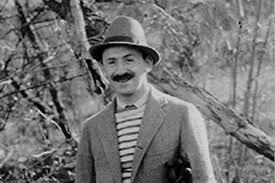
I have consistently been told that I have a comforting presence, especially with girls who are going through terrible breakups with either their husbands or boyfriends. I don’t know why, but I appear to be there when some sort of disturbance happens. More like instinct is at work than planning out my life to fulfill someone’s misery. But writing letters to people, I don’t know, or even know if these problems are real or just a projection of what they need or want in life… I think the big question is “what is life?” And I do ask that to myself all the time. The answer to be frank, is that I don’t care. I don’t care about the people who write to me. Nor do I care about my friends who are going through difficulties. All I know is that I have to look like I care and therefore I do care, but I know, deep down, that I don’t care.
I hate myself for not caring. I think to be human to be concerned about your fellow suffers. Yet, when the moment arrives, I just know how to act like I’m caring. When you get down to it, I don’t know myself that well, and therefore you shouldn’t either.
Published on October 17, 2014 16:46
October 16, 2014
October 16, 2014

October 16, 2014
“I have a habit of leaving places at the wrong time, just when something big may have happened to me.” I love to escape and locate the source of my pain, which is a desire for my own personal version of anxiety. “Life is a solitary cell whose walls are mirrors.” My very reflection is a source of endless entertainment for me. Everyone who knows me that “writing is my vacation from living.” So to be in a room that is endlessly reflecting yours truly, is a form of heaven that is man-made. Or I should say Tosh-made.
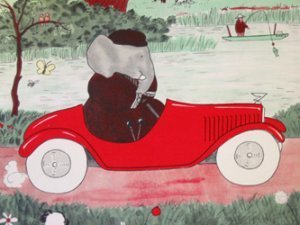
I’m sort of like the elephant that left the jungle to visit the big city. Tokyo is not exactly a big city, but more of a metropolis. It’s bigger than life, and the source of my work here is supposed to be bigger than life, which means bigger than Tokyo. “Be yourself; everyone else is already taken.” With that in mind, I set out to take the world that is out there, and somehow make it mine. The only way I can do this is to edit what I want, and not want, and place it on a blank page. The problem is people have a tendency to pull me in a direction I don’t want to take. They do it, because they’re concerned about my welfare, or even for egotistical purposes from the other party. Once you have your mission, it is almost an art form to stay on the narrow path, and not let the unfamiliar noise remove you from that road. It’s easy to get lost, and there are so many false street signs to tell you to go in that direction or “in that way,” when in fact, by instinct, you know you’re doing the right thing. Even if you do cause a certain amount of destruction here and there. “To live is the rarest thing in the world. Most people exist, that is all. ”

What I fear the most is missing the last train home. To be stranded and knowing your existence second-by-second till the next train arrives, many hours later. Or going to a lecture that is in Japanese, yet not knowing that language, but just sitting in the audience trying to figure out what can’t be understood at that moment and time. Time is stopping. Time is not moving. Time there waits for no one.
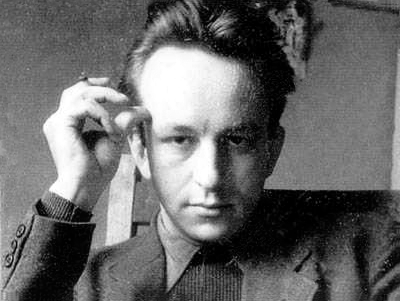
I came from the jungle to be here, and I realize that one can’t fully leave the jungle, because it is home. And the characteristics of the home are terrible. A famous philosopher wrote that “the proof of the pudding is in the eating! So what! We are interested in the mechanism that ensures that it really is a pudding we are eating and not a poached baby elephant, though we think we are eating our daily pudding!” To analyze the world in a sense is to cut yourself open with a sword and letting your intestines to fall out of your stomach on to the sidewalk.
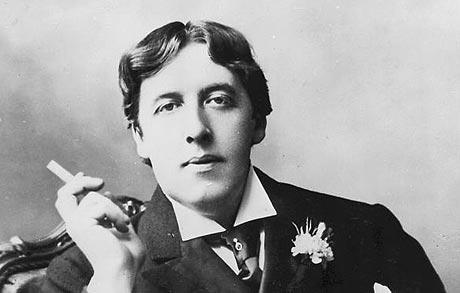
As I write, I can hear the sound of wind running through the space between the buildings. It’s eerie, but the music is beautiful. It makes me sad that I will never write anything that is as beautiful as that sound. Nevertheless I will never go back to the jungle. Home is there, but here I tend to lose myself, and to be totally lost, is a blessing.
Published on October 16, 2014 18:59
October 15, 2014
October 15, 2014

October 15, 2014
“The Voice of love seemed to call me, but it was a wrong number.” That seems to happen a lot in my life, and yet, I tend to keep moving on. Although I have been financially strapped for a while now, I still keep a man-servant with me. I had to sell off my rare vinyl and books, but I think I made the right choice. A butler is a sort of combination of spiritual advisor as well as taking care of one’s schedule and clothing. In a way it is like an I-Phone, but I prefer the human touch than the mechanical one. Kato, was born in Kobe, and eventually ended up in Los Angeles as a student of the English language and to study the fine art of Judo. When he was thrown out of language school, due to an overnight game of Go, where some say he swindled various participants of their parent’s pension money. Nevertheless, I hired him as a butler, and he moved in with me in my single room apartment at the time off Melrose Avenue. Over time I got married, and people come and go in my life, but my butler remained with me thick and thin. And due to his cooking, the thin part is losing out to a great amount of fat. Even though I’m suffering from the physical point, I’m gaining in a peace-of-mind that is opening doors left and right for me. Of course, eventually those doors shut tight as soon as I leave the exit, but I go through life as an experience, and not as an end result.
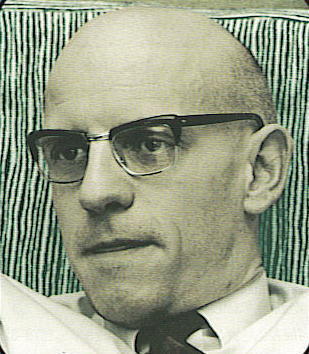
I began to write a detective novel that is based on my life. Not the case itself, God no, I never even seen a dead body before, but the fictional detective is based on my character. I’m not one of those writers that can write third person, only first-person narratives. Even when I dream, it is me watching the dream unfolding in front of my eyes. I’m in the audience, and oddly enough the figures in my dream narratives are not based on people I know. They are usually an archetype of a specific type of person. Usually the slut, the loser and so forth. But when I awake, I can’t write the narrative as a nameless observer. I need to be in the story as well, and it has to be told from my point-of-view. Therefore my character is a foppish dandy, and one who is part of society that is slowly decaying. As people who know me, decay is very much a process in life that I find fascinating. Kato always supplies me with clothing that is slightly worn or torn even. Maybe the collar is even moderately stained. It’s imperative to show life as it moves from one plane to another - and a detective murder narrative is very much part of that world. For instance I come upon a room where there is a lifeless body, and my detective character comments and to quote from my book “The Canary Murder Case”: “Why the haste, old dear?” I asked, yawning. “The chap’s dead, don’t y’ know; he can’t possibly run away.”
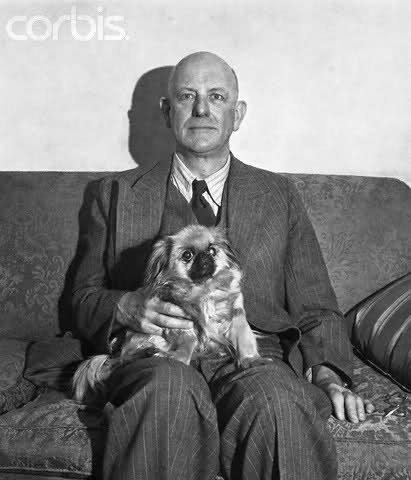
When you have a man-servant, one takes a stand in life that says I’m going to drink that cup of life and not find a dead beetle at the bottom. The ability to transform oneself into something hopefully better, is one of the great things regarding to be alive in such a horror show of a world. “I don’t feel that it is necessary to know exactly what I am. The main interest in life and work is to become someone else that you were not in the beginning.” And there lie the great adventures that come upon us, as we slip into a world that looks like the outside. It is really an inner landscape that Kato and I dwell in. I once asked Kato if “trousers matter?” He told me that “the mood will pass, sir. ”
Published on October 15, 2014 18:51
October 14, 2014
October 14, 2014

October 14, 2014
“Promise me you’ll always remember: You’re braver than you believe, and stronger than you seem, and smarter than you think.” I followed that advice to a “T” and it left me miserable and quite alone. But alone is perfectly OK, because I can’t stand the mindless chatter of my fellow citizens, even if it is to go from point A to Z, there is too much noise that goes with it. To find that one piece of silence and to be able to groove with it, ah, that’s amore! Even poetry is way too loud for me. I recently picked up a book of collected poems by e.e. Cummings, and man, is he unnecessary loud or what? “Yours is the light by which my spirit's born: - you are my sun, my moon, and all my stars.” Total shite. When you compare it to Dean Martin’s song and to quote:
“When the moon hits your eye
Like a big pizza pie, that's amore
When the world seems to shine
Like you've had too much wine, that's amore. ”
The above song is blaring, but it is also fits perfectly as a form or stanza. The e.e. cummings poem is also a lie. I don’t believe him when he writes such sentiment - also he was a life long Republican who supported Joseph McCarthy, so fuck him anyway. On the other hand, the Dino song perfectly reflects a realistic approach to life, that doesn’t make moral demands on one’s ability to love or not to love.
Even that, I need to secure myself from the brutality that lies in front of me. Life to me is a series of elimination. There is such a thing in having too much. When you have it all, you forget where you’re standing, and therefore the space becomes more important than the clutter that surrounds you. As a child, my mother read me “The House of Pooh Corner” and there is a segment that explains everything that is important in my life. To quote”
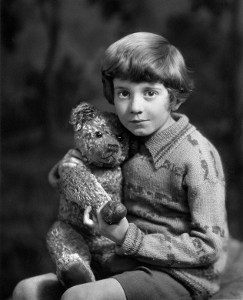
“..."But what I like doing best is Nothing." "How do you do Nothing?" asked Pooh, after he had wondered for a long time. "Well, it's when people call out at you just as you're going off to do it, What are you going to do Christopher Robin, and you say, Oh, nothing, and you go and do it." "Oh, I see," said Pooh. "This is a nothing sort of thing that we're doing right now." "Oh, I see," said Pooh again. "It means just going along, listening to all the things you can't hear and not bothering." "Oh!" said Pooh.”
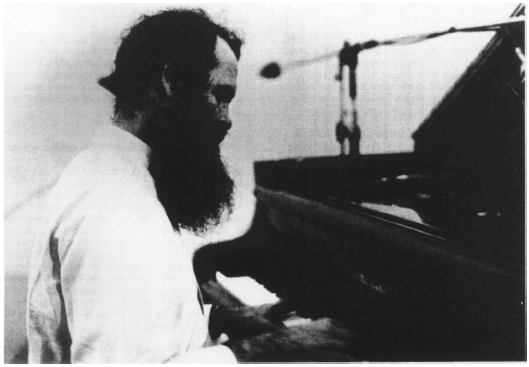
Now that’s amore! Le Monte Young had a conceptual piece that was equally important to me. He recommended to draw a straight line, and follow it. That, and his composition “The Well-Tuned Piano,” which in a typical performance can last five to six hours - is just heaven to me. There is no beginning and no end, just an existence where you float upon what’s inside your head, and only the beat of your heart is the only rhythm one needs.
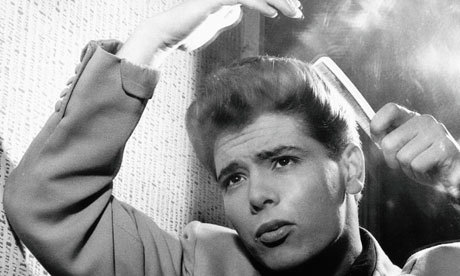
For the past ten or so years, I have been listening to Cliff and The Shadows, trying to bring myself closer to a culture that I understood being essential to one’s mindset. I even danced in front of the mirror, imitating the choreography of that band’s intimate and quite beautiful dancing; but even that, I was hearing someone else’s noise, and I needed to live and reflect on my “noise” than someone else’s. Therefore the dream that is in front of me, is one of my own making, and with that knowledge, I jump in with both feet, and not a thought in my head.
Published on October 14, 2014 19:04
October 13, 2014
October 13, 2014

October 13, 2014
“I’ve invented nothing; I’ve simply been the secretary of my sensations.” As I walk around Asakusa, I found the theater where Lenny Bruce performed, totally in English on Rokku-Broadway. It’s an area that is full of small theaters, and it is regarded as the home of 19th and 20th centuryJapanese comedy. Bruce, being the king of American stand-up comedy, decided to do a show here in the late 1950s, but did his act in English. Ten or so years after Japan surrendered to the United States, this series of islands had to cope with another alien invasion. What I have read is that he bombed at the Toyo Gekijo theater. It wasn’t his subject matter, but the fact that he insisted on doing the entire act in English, which in the 1950s, was not a common second language in Japan.

Nevertheless, to be honest, it is not what he says that is so great, but how he says it. I rarely follow his narratives, but instead I’m glued to the visuals of the man on stage. The way he snaps his fingers, in key lines, it is virtually done to wake one up in the audience. In other words, he’s absolute music to me. But as a visitor or tourist, I have a tendency to like to see performances in languages other than English. And Engilsh is the only language I know. And what I know beyond language is music and visuals. So in that sense and my thinking, Tokyo is the perfect landscape for me. Here, I can enjoy my misery in peace and quiet, because chaos is all around me. I can’t figure how to work with anything here. Toilets are impossible. So many push buttons to push, but all in kanji, so I can’t read what it is for or even why. But on the other hand, “Chaos is rejecting all you have learned, Chaos is being yourself. ”
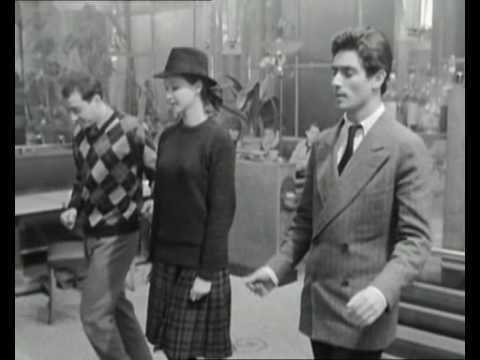
I went to the “Band of Outsiders” cafe in Shibuya, which is a venue devoted to Jean-Luc Godard’s film “Band à part.” It’s an interesting place, because all the customers here are encouraged to speak only lines from that film (in Japanese), and of course at 9 PM every Tuesday night, there is the famous line-dance done in the film. Sometimes there are up to 15 people doing an exact imitation of the dance done by Anna Karina, Sami Frey and Claude Brasseur. With a few glasses of sake, I get the encouragement to join the dance. In my mind, I just try to imagine Lenny Bruce doing the dance as well. I snapped my fingers like everyone else in the dance, but my thoughts are not on that film scene, but Lenny as he performed in front of an indifferent Asakusa audience.
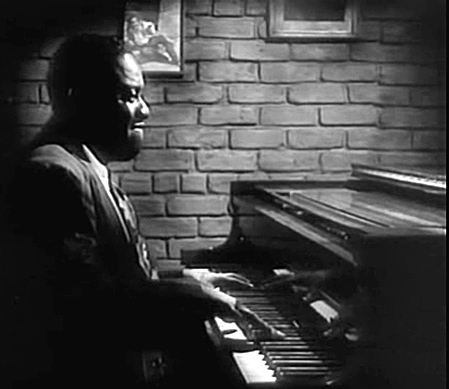
“The fact that life has no meaning is a reason to live — moreover, the only one.” Therefore I venture into the night, and try to find substance, but alas, even that, is just an illusion. Yet, the beauty of the moment of getting lost, or having the mjst of the rain hit your face, is truly what to live for. “Melancholy: an appetite no misery satisfies.” I go to Disk Union Shibuya, down to the basement in their jazz store, to hear the melancholy playing by Art Tatum, and suddenly remembered that my life is full of right turns, when I’m obviously left-handed. No wonder I don’t connect to this world. And happily so.
Published on October 13, 2014 18:33
October 12, 2014
October 12, 2014
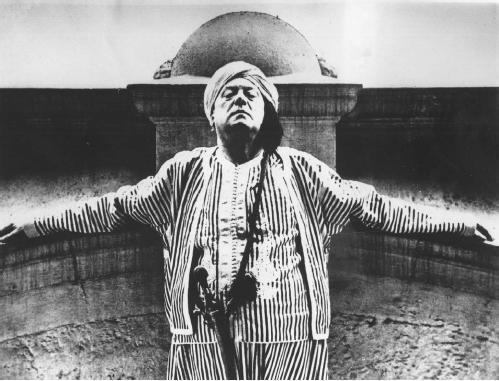
October 12, 2014
The voice of Aiwass came upon me as I about to fall asleep. It finds out about me when I’m either in the mood of exalted hope or dread. “The voice was of deep timbre, musical and expressive. It tones solemn, voluptuous, tender, fierce or aught else as suited the moods of the message.” He, and it is for sure a male, speaks in English and very clearly, without an accent that can pinpoint where the voice came from. The voice seems to come from the corner of my bedroom, but clearly he’s not there or here, but alas, in my heart and soul. I imagine Aiwass as an “angel,” but one, who looks over me. He recites me tales that I write down, and therefore I become known as Clark Savage, Jr.
I was raised since birth by my father (perhaps Aiwass) and other scientists to become the most shinning example of a human being with respect to physical strength, intelligence, and physical fighting skills. In other words, a perfect human being. I’m a physician, surgeon, scientist, adventurer, inventor, explorer, researcher, and a poet.
Needing a headquarters I set up a lab and living area on the 86th floor, at the Empire State Building in New York City. No one can be a living fort by itself, so therefore I have five assistants:
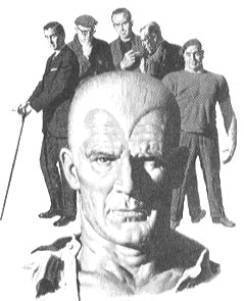
- Lieutenant Colonel Andrew Blodgett “Monk” Mayfair, an industrial chemist.
- Brigadier General Theodore Marley “Ham” Brooks, an accomplished attorney.
-Colonel John “Renny” Renwick, a construction engineer.
-Major Thomas J. “Long Tom” Roberts, an electrical engineer
-William Harper “Johnny” Littlejohn, an archaeologist and geologist.
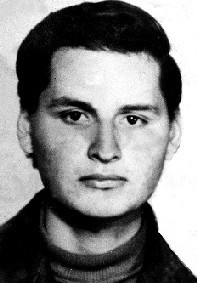
I watch over conditions in Palestine, Guantanamo Bay, and elsewhere where evil is being done, in the name of “good.” In a world of shadows, I hear Aiwass, and he tells me wise ways. It angers me that my fellow citizens think Aiwass as a subjective presence in my life, when in fact he’s quite objective in his manner in communicating with me. My assistants and I stand ready to battle the wrong and turn it into a right. Let me make this pledge to you:
“Let me strive every moment of my life to make myself better and better, to the best of my ability, that all may profit by it. Let me think of the right and lend all my assistance to those who need it, with no regard for anything but justice. Let me take what comes with a smile, without loss of courage. Let me be considerate of my country, of my fellow citizens and my associates in everything I say and do. Let me do right to all, and wrong no man.”
With my headquarters on the 86th floor, I have a private high-speed elevator that leads to my fleet of cars, trucks, aircraft, and boats. I will use all my strength and wisdom in bringing justice to a world that laughs at common decency. “In the absence of willpower the most complete collection of virtues and talents is wholly worthless.” I have the will to do what I have to do. As for faith, “I slept with faith and found a corpse in my arms on awakening; I drank and danced all night with doubt and found her a virgin in the morning.” Or in other words, “I have never grown out of the infantile belief that the universe was made for me to suck.”
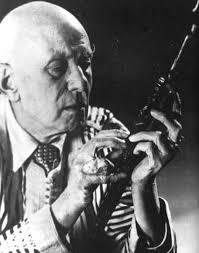
So my assistants and I go in my limousine, and play “New Rose” by the Damned and I try to see the world as a reflection of my soul, which I share with Aiwass. There goes the night…
Published on October 12, 2014 18:51
October 11, 2014
October 11, 2014
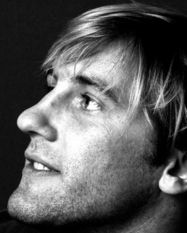
October 11, 2014
I’m 60 and I’m fat. How is it that such a beautiful boy like me, turns into an old fat man? It seems like life’s revenge at the very least, and yet, what have I done in life, except show it love and respect. And in return I get a puffy body. Of course I could have exercised more with weights and avoided certain foods, but at the time, it didn’t seem reasonable. When someone puts a cake with whip cream in front of you, wouldn’t it be bad manners not to eat the cake? I barely left the plate on the dinning table, and if that was eatable I would have to digest that object in no time.

The worst is when people who I have known for a long time, look at me now, I can see the disappointment in their eyes. When I look at images of Gérard Depardieu, and see how obscenely heavy he’s now, I think “Oh my.” Now I can see people thinking the same thing with me. What’s even more embarrassing to me is when I see old girlfriends now, who are as stunning as ever. I knew they went out with me because when I was younger, I was quite handsome, but now, I can see them being disgusted and even ashamed of their old passion for me.
Since my physical side is falling apart I really need to take care of my brain more. As most of you know, I write every day under stressful conditions. If I finish my daily writing for that day, then I feel I have completed something and I can go on with my (so-called) life. “I’m fat, but I’m thin inside… there’s a thin man inside every fat man.” I need to focus on my inner-well being. I often walk in the public streets, both here in Tokyo and Los Angeles, and I noticed my reflection from boutique windows and think "oh wow have I changed." The funny thing is that I remember the moment I got fat. I know one doesn’t get fat overnight, but that self-awareness happened to me about a month or so ago. At first, I observed the friends who glance at my stomach and then quickly look away. I just have to tell you it’s a terrible moment. I don’t think I can ever be skinny again. Those days are gone. But lf I develop a bigger character to fit my bigger body, well, that would be ideal. As Jack said: “With my sunglasses on, I’m Jack Nicholson. Without them, I’m fat and 60.

It is at that time I really got into Orson Welles. I have decided to become a fan of his later works, you know... when he was fat. I wonder how he felt about himself as he gained weight. He is likewise a fave of mine because he started at the top and worked his way down. As he further went down, the fatter he got. It is like each failure added inches to his waist. As I struggle with my work, I become super conscious of my gaining weight, and I ask where it will end. As Orson has commented: “When you are down and out something always turns up - and it is usually the noses of your friends. ”
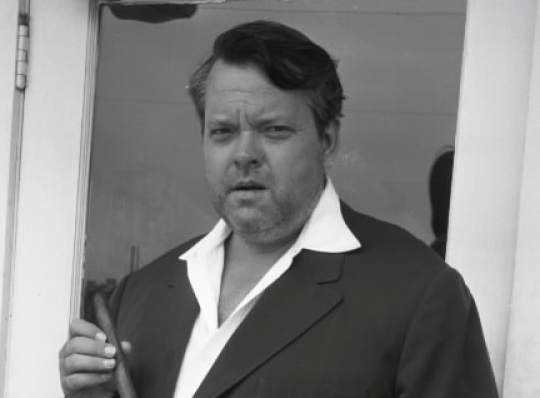
As age and weight take over me, I try to flow like a rapid river, but to be honest I feel like a water trapped in a damn. Sitting there and breeding mosquitos by the millions, and not being able to move. Just sit and rot. That’s fat for you.
Published on October 11, 2014 17:08
October 10, 2014
October 10, 2014

October 10, 2014
The one artist (besides myself of course) that I admire is Ed Wood Jr. I admire him because he shouldn’t be by all accounts exist on this planet, yet he kept his head down and kept going. They treated him like shit, and even though he had to rely on the food that was thrown away by the Hollywood industry, he kept going, like an insect or to be more precise a cockroach. Like Wood, I had to swallow a lot of shit from people who just took pleasure in shitting in my mouth. I know the taste, and I have the taste of Ed Wood in my mouth. There are people like Thelonious Monk, who just wanted to do their art in peace. Yet was thrown against the wall, and told that they were insane, or just to go away. Of course, there were cops with a blackjack that wanted the taste of Monk’s blood on their hands. A human being with a vision never gives up. I, on the other hand always give up.
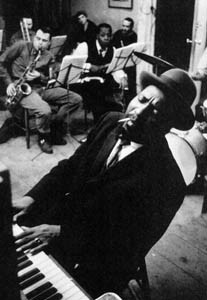
“Surrender” should be my middle-name. Not everyone is blessed to have a Pannonica to watch your back. A true fan, she took care of both Charlie Parker and Thelonious in their moments of sickness and joyous. If we’re lucky, and most are not, we have a version of Pannonica in our lives. I do, and she allows a space to be had, where I can roam without a passport or a care in the world. But of course, that is an illusion. When I go into a movie theater to see a film by Ed Wood, for instance “The Sinister Urge, ” I am reminded here is an artist that was barely holding on to respectability. He was a the bottom of the trash heap, and after this film it would be one would call” a blur of smut racket nudie flicks, soft core porn, and it ends with x-rated novels and films.” Alas, an artist that flew too close to the sun, and therefore his wings burned off, and he crashed into the earth. One then wonders if he was an artist? Perhaps he dwells into a world of his making but not by choice. You go to the world with materials that are on hand, and with that tool and substance you hope to make something great. It’s a giant leap into faith that somehow it will turn out OK. Wood wasn’t afraid, like I am. He took numerous risks in a world that was hostile toward him.
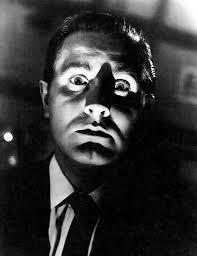
Thelonious was a different type of character. He knew he was placed on the right wave length, and overall, I don’t think he cared what others think or thought of him. “I say, play your own way. Don’t play what the public wants. You play what you want and let the public pick up on what you’re doing - even if it does take them fifteen, twenty years.” Wood needed acceptance in a large market place. Monk basically lived totally through instinct. He had no plan, because he loved the moment when it happened, and didn’t look back when it passed by. I’m not only moved by his music, but also his dress-sense, his style and the way he danced around his piano during performances. And it was a performance, because the audience is watching a moment as it happens. It can’t be controlled or contained. It just happens. Wood is all about craft and lousy advice. In his book “Hollywood Rat Race”, he advises new writers to “just keep on writing. Even if your story gets worse, you’ll get better.” Now, that depends on how one defines “worse” and “better.” But then again, Wood had commented: “What do you know? You heard of suspension of disbelief? ”
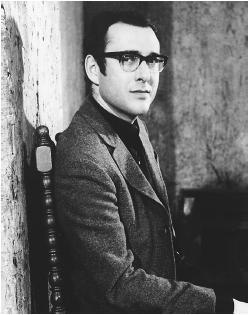
The distinguished citizen of Hackney, Harold Pinter, once wrote “I can’t really articulate what I feel.” Yet, of course he does, because that is exactly what writing is - to swim around articulation, and hopefully some tragic mistake will come out of it. It is just like squeezing the wound and watching the puss come out. It’s disgusting, but also somewhat pleasing at the same time. Articulation is the key or the entrance of the artist’s soul, and with that in mind, that is what will make me successful or a failure. And lately I have been on a tightrope with slippery soles.
Published on October 10, 2014 17:27
October 9, 2014
October 9, 2014

October 9, 2014
I lost to Patrick. Modiano. A totally obscure French author who had a book in print in the U.S., but now appears to be out-of-print. I, on the other hand, have two books in print, and yet, I was unable to obtain the Nobel Prize for Literature. Clearly there is no God. On the brighter side, at least I didn’t lose to Murakami. So maybe there is a God.
In the last eight hours, I have learned a good lesson. Never budget yourself in the slim hope of winning a prize. I can clearly use the $1,100,000 winnings as well as the award’s reputation, but alas, perhaps I’m fated to be in the shadows of the literary world. And is that a bad place? I used to think that I just wanted to be popular and loved by everyone, but then I had to remind myself that I can’t stand most people. So why would I want to be loved by people by people I wouldn’t spit on, due that it’s not worthy of the procedure.
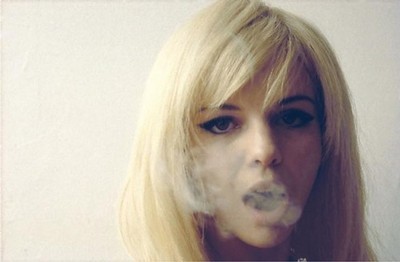
Right now, due to my sole and obsessive focus on writing, I pretty much ignored the financial world. There is not a change in hell or heaven for me to get monetary award for my work. Looking forward to the future, there is…none. At least till December 31, when I will finish my writing project. After that, I don’t think I can survive in this world. I may have to sell my collection of rare Jacques Tati 35mm prints as well as my original editions of France Gall recordings, but alas, it is just objects, and the only object I need now is food and drink. I was hoping to win the Nobel, if for nothing else, give me time to focus on the writing till I die of old age. But now, that possibility seems so distant, it is like watching the ocean and looking at its vanishing point. There is nothing ahead of me, and I need to be honest that this is it, and “it” is not going to be that hot. In fact, it’s going to be a disaster.
It’s ironic that Modiano’s work deals with the subject matter of ‘identity.' My work is pretty much in that category as well, in fact, I think most 19th and 20th century literature is about the loss of identity, but ironically I don’t really have one, unless I write. Once the writing stops at the end of this year, I will be adrift in an ocean of my own making - and it will be on a leaky boat, just focusing on keeping the vessel as dry as possible. Like a Lee Wiley recording, I’m leaving the sophisticated world of the pen and paper, and will float to neither here nor there.
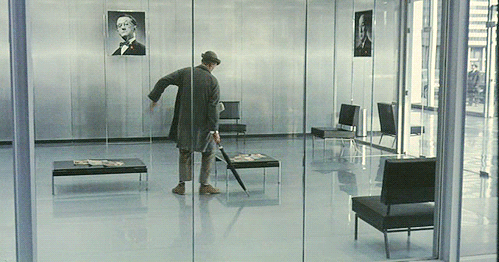
I want to congratulate M. Modiano on him getting the award, and surely he deserves it. From time-to-time I do feel that the $1,100,000 was nabbed away from my hand, but I have to get over it. I have to get over a lot of things. “Get over it man.”
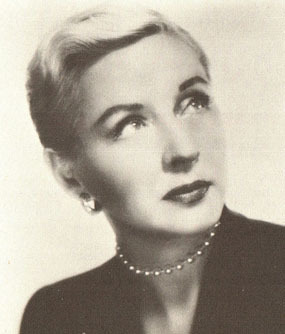
Published on October 09, 2014 17:23
October 8, 2014
October 8, 2014
 Photograph by Stephen Shore
Photograph by Stephen ShoreOctober 8, 2014
While wandering around Aoyama Book Center near Omotesando, I came upon a book of photographs by Stephen Shore. Mostly they were detailed images of various landscapes in America, but what I found interesting are the interior images of hotel and motel rooms. America seems to have the ability to express itself in these interiors - no matter how exotic or homey they look, it always spells out “America” to me. Not that I miss my home country, but I decided to use one of Shore’s images as an inspiration to re-do my tatami mat room in Meguro.
Researching his work, I found a quotation by him that I like a lot. This is exactly what I read: “I discovered that this camera was the technical means in photography of communicating what the world looks like in a state of heightened awareness. And it’s that awareness of really looking at the everyday world with clear and focused attention that I’m interested in.”
I too have an interest in my own sense of heightened awareness. In fact, I had to do away with the mirrors that cover my wall space, because it was too much of awareness. Using the photograph, I went to Karf on Meguro Dori to make me the exact bed that is in the Shore picture. The measurement had to be perfect because the room is very small. So basically the bed fits the entire room. In other words, I can’t walk around or behind the bed. The bed is the room. Which is also a very seductive if I bring a girl back home. No where else to go except on the bed!
Also I found a painter in Meguro who could copy the image off the photograph of the tree limb. Every room needs a sense of nature, even if it’s fake. The only question is where will I keep my clothes and records? I decided to put my belongings in the toilet area, and just leave enough room to reach the instrument of need, and to be in a position to sit down, but I can’t stretch my legs out. Luckily I have a portable turntable, and the only music I have in Tokyo is a bunch of recordings of Toru Takemitsu’s music.
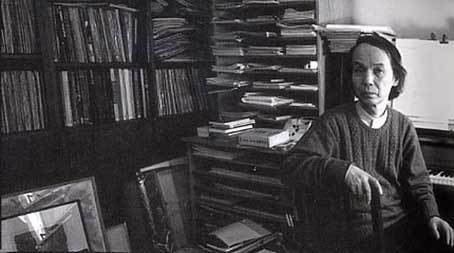
Now I can lay in my bed and look at the tree limb and think of my own awareness while listening to Takemitsu’s music. What I find aesthetically pleasing is the white backboard of the bed, and how it matches the wall. It was tricky getting wood paneling in Japan, but I found wall paper in Tokyu Hands that resembles the paneling - so even though that is fake as the tree limb, I felt close to nature as well as my version, or I should say Stephen Shore’s version or vision of America.
As Tekemitsu commented, “...by admitting a new perception of space and giving it an active sense, is it not possible to discover a new unexpected, unexplored world?” I say yeah. This is so true!
Published on October 08, 2014 19:36



